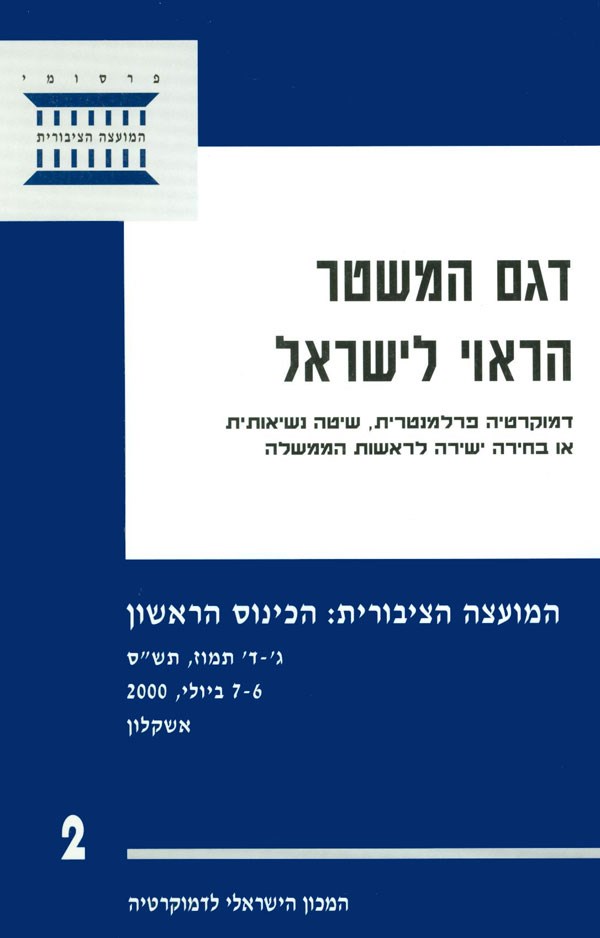An Appropriate Model of Government for Israel
Parliamentary Democracy, Presidential System, or Direct Election of the Prime Minister
The First Public Council Conference, July 2000
- Publication Date:
- Cover Type: Softcover | Hebrew
- Number Of Pages: 118 Pages
- Center: Constitution by Consensus
- Price: 50 NIS
An overview of the first meeting of IDI's Public Council, which built the framework for future meetings in 2000–2003. It presents a comparative study of the models of government that are best suited to Israel.
This book summarizes the proceedings from the first conference of IDI's Public Council, which convened in July 2000. The conference discussed the appropriate type of government for Israel and examined three models: parliamentary democracy, the presidential system, and direct election of the prime minister.
The speakers at the conference, which was held during the period when the direct election of the prime minister was in effect in Israel, shared the opinion that the parliamentary system is the most appropriate for Israeli society, with its varied populations, tension between groups, weak political culture, desire for strong government, distrust of governing institutions, and the prevailing notion that democracy is a matter of majority rule. There was also agreement that a return to the parliamentary system should be accompanied by changes and reforms aimed at overcoming the weaknesses of the system and preventing a failure of governance and a tendency towards populism. Several proposals were raised: in this context:
- To increase the electoral threshold gradually, so that the Knesset would not be overrun by many Lilliputian parties, at the expense of the government’s ability to get things done. This proposal was criticized as undemocratic and contrary to the principle of representation. An additional concern was that such change would be ineffective, because it would lead to the formation of joint lists before the elections, which would split up immediately afterwards.
- To adopt a constructive vote of no-confidence. In this system, a no-confidence vote to bring down a government would have to produce a new government based on the very same Knesset; that is, a successful no-confidence motion would not lead to the dissolution of the Knesset and new elections. This proposal found widespread support among participants.
These proposals were also discussed at the second conference of the Public Council, which was devoted to the topic “elections.”

